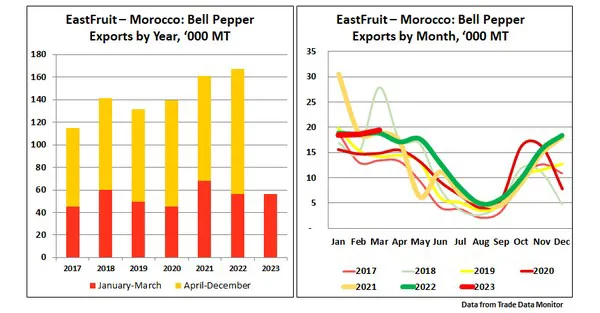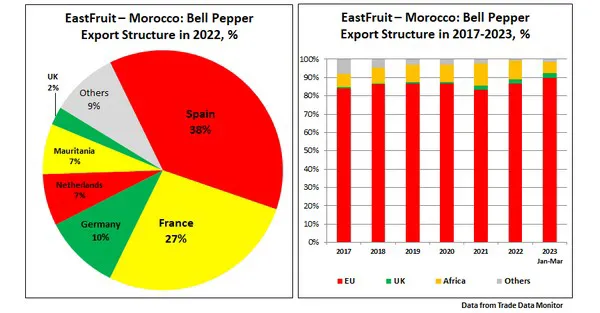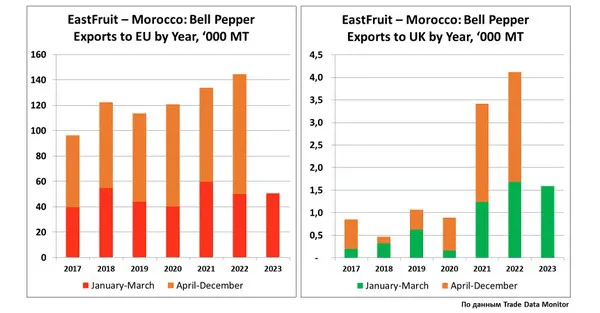Bell peppers are one of the most exported categories from Morocco and the second in revenues from exports after tomatoes.
Morocco, thanks to its favorable climate and developed agricultural infrastructure, has been rapidly developing its greenhouse industry, Morocco has the largest areas under greenhouses in Africa and is one of the global leaders in that regard.

The Moroccan bell pepper exports have been annually growing and have increased by 45% over the past five years. As a result, in 2022, Morocco ranked sixth in the global ranking of the biggest exporters of bell peppers, and Moroccan exports were even higher than Turkish ones.
Growing vegetables in protected ground allows Moroccan farmers to grow bell peppers all year round and, thus, secures all-year round sales for export. Usually exports peak in January-March, and, in the first three months of 2023, Moroccan exporters have already sold 56,000 tonnes of bell peppers, which is quite a nice start of this year’s campaign.
As in other vegetable segments, the Moroccan bell pepper exports are focused mostly on European buyers.

Spain and France are the key importers of bell peppers from Morocco, with their cumulative share reaching 65%. Morocco is also the leading exporter of bell peppers to Spain and ranks second after Spain among the biggest suppliers of France. Morocco is also an important exporter for Germany and the Netherlands, ranking respectively fifth and third in their list of suppliers.
Despite the largest share going to Europe, Moroccan bell peppers are also actively imported by African countries. In 2022, more than 11,000 tonnes of Moroccan bell peppers were shipped to Mauritania, and Morocco turned out to be its leading supplier of these vegetables.
Rapid growth of the Moroccan bell pepper exports to the UK should also be mentioned.

The UK accounts for just 2% of Morocco’s total annual exports of bell peppers, but the shipments have been growing rapidly. In just the past two years, Morocco has increased its exports to the UK 10 times due to the Brexit and its aftermath, leaving the UK market with a sharp necessity to search for new non-EU suppliers.



No comments
Post a Comment